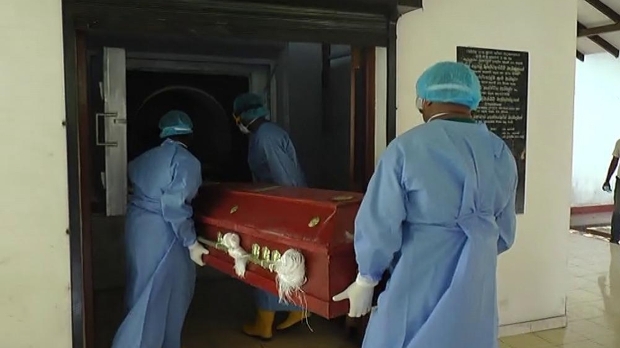By P.K. Balachandran
COLOMBO – Sri Lankan civil society organizations agitating for the Muslims’ right to bury their COVID-dead have declared they will explore options to secure their inalienable religious right.
“The faith the families of the victims of forced cremation of COVID-19 or COVID-19 suspected dead had in the highest court in Sri Lanka has been shattered. Victims and communities are now left without recourse in Sri Lanka for the continued injustice they suffer,” said a joint statement issued by 20 leading civil society organizations after the Sri Lanka Supreme Court summarily dismissed eleven petitions seeking an order to the Gotabaya Rajapaksa government to reverse its decision to ban the burial of COVID-dead.
The statement quoted one of the petitioners who challenged the offensive regulation in court as saying: “We placed greater hopes in the courts. However, for reasons unknown, our applications have been rejected. Now we feel dejected, let down and abandoned.”
As of December 3, Sri Lanka had over 25,000 cases of COVID-19, 124 deaths, of which over 50 were Muslims.
On Tuesday (Dec 1) the country’s Supreme Court, by a majority decision refused to grant leave to proceed with the 11 applications filed by petitioners belonging to Muslim, Christian and Catholic communities challenging the government’s forcible cremation policy on the grounds that it violates the right to freedom of religion and belief of some faiths and that the said regulation, in fact, violates the law under which the regulation has been made, as the law itself permits either burial or cremation.
Several eminent lawyers represented the petitioners and argued the State had provided no evidence that burial of COVID-19 or suspected COVID-19 dead is a danger to public health.
Hence, they said the government, by imposing the new restriction violated the constitutionally protected and safeguarded rights of religious beliefs and practice for whom burial is a critical religious practice, in addition to being a fundamental right.
One of the judges had dissented probably on the basis that there were issues that required consideration. Given the sensitivities and importance of the issue, it was felt that the court could have granted leave to be heard in full or referred it to a larger bench.
Some of the petitioners said on Tuesday that the distraught families of the victims have been asking them to explore the possibilities of how they could continue to fight for justice and hence would consider all options.
“We fully understand that due to the pandemic there is public emergency under which certain rights can be limited including the manifestation of freedom of religion and belief. We also understand that Buddhists, Hindus, Christians, Muslims and others have all been affected by these restrictions; but in all other cases where rights are limited there is evidence of the need to do so,” said one of the petitioners against the policy on forcible cremation.
It was brought to the attention of the court that Catholics and Muslims, in deliberations have agreed to all the restrictions including with regard to gathering, handling, washing, praying and specialized mode of burying and all they want was to be buried adhering to all health conditions.
Under international law, limitations of rights, such as the freedom to practice one’s religion have to be prescribed by law, and the limitation must be necessary and proportionate.
Restrictions and limitations on religious gatherings, congregational prayers and mass celebrations of religious festivals can be necessitated on the grounds that social distancing is vital to reduce the spread of the virus and are being adhered to and cooperated voluntarily.
“Over and over again we have asked the government to give us the reasoning for this policy and they have failed to provide any evidence that burial of COVID-19 dead can contribute to the spread of the virus or provide any health threat,” a son who did not consent for the cremation of his father and hence had to abandon the father’s remains said.
There has been national and international criticism of the Government of Sri Lanka on its decision to cremate COVID-19 and COVID-19 suspected dead, in spite of clear guidelines by the World Health Organization (WHO) explaining that the burial of such victims poses no danger to public health. The Resident Coordinator of the United Nations office in Sri Lanka, United Nations special experts and regional human rights groups have separately written to the government calling for the policy to be changed to ensure COVID-19 dead were handled with dignity and human rights of all are protected.
Numerous national civil society organizations, religious groups and individual activists have also written letters and signed petitions to the government calling for a change to the policy.
Human rights groups have been warning that the ethno-centric position of the government, in the context of the State’s failure to challenge hate campaigns and violence against Muslims, point to racism and discrimination targeting the country’s approximately 9% Muslim population.
These measures affect more than one religious group, but it is particularly terrifying Muslims for whom the burial of dead is a non-negotiable religious practice. They feel targeted, bullied and threatened by the manner in which the government is acting on this, the joint statement said.
-ENCL


